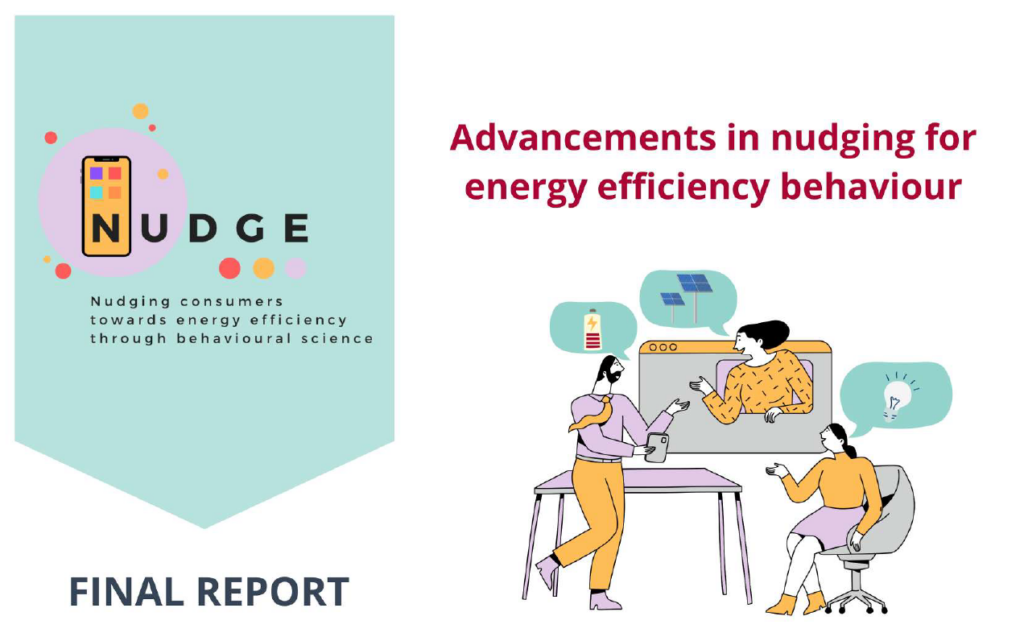Closing NUDGE project in a final report outlining how we succeeded to explore the efficacy of behavioural nudges for energy efficiency
By Filippos Anagnostopoulos
🏠 The NUDGE field experiments in five EU countries have shed light on the nuanced effectiveness of nudging interventions in residential settings.
👩👧👦 Our findings underscore the importance of tailoring nudging strategies to individual household needs and motivations, highlighting the diversity in household energy behaviours.
👩🔬 The project utilised advanced methodologies, including Randomised Controlled Trials (RCTs) and sophisticated econometric techniques, to measure the impact of these interventions.
💡 We gained crucial insights into the potential of real-time feedback mechanisms, awareness raising, social comparisons and default options on energy consumption, demonstrating their effectiveness in promoting energy saving behaviours.
🏛 The NUDGE project has also emphasized the need for alignment between nudging campaigns and regulatory frameworks, as well as the integration of behavioural insights to support energy policy.
The insights and lessons learned from the NUDGE project are a significant contribution to our efforts in the EU for promoting efficient energy use and shaping the implementation of successful energy policy.
Read more in the project final report, a visual guide to the project!
Additional authors and reviewers include all project partners, we thank them for their dedicated work in the project 3.5 years.

